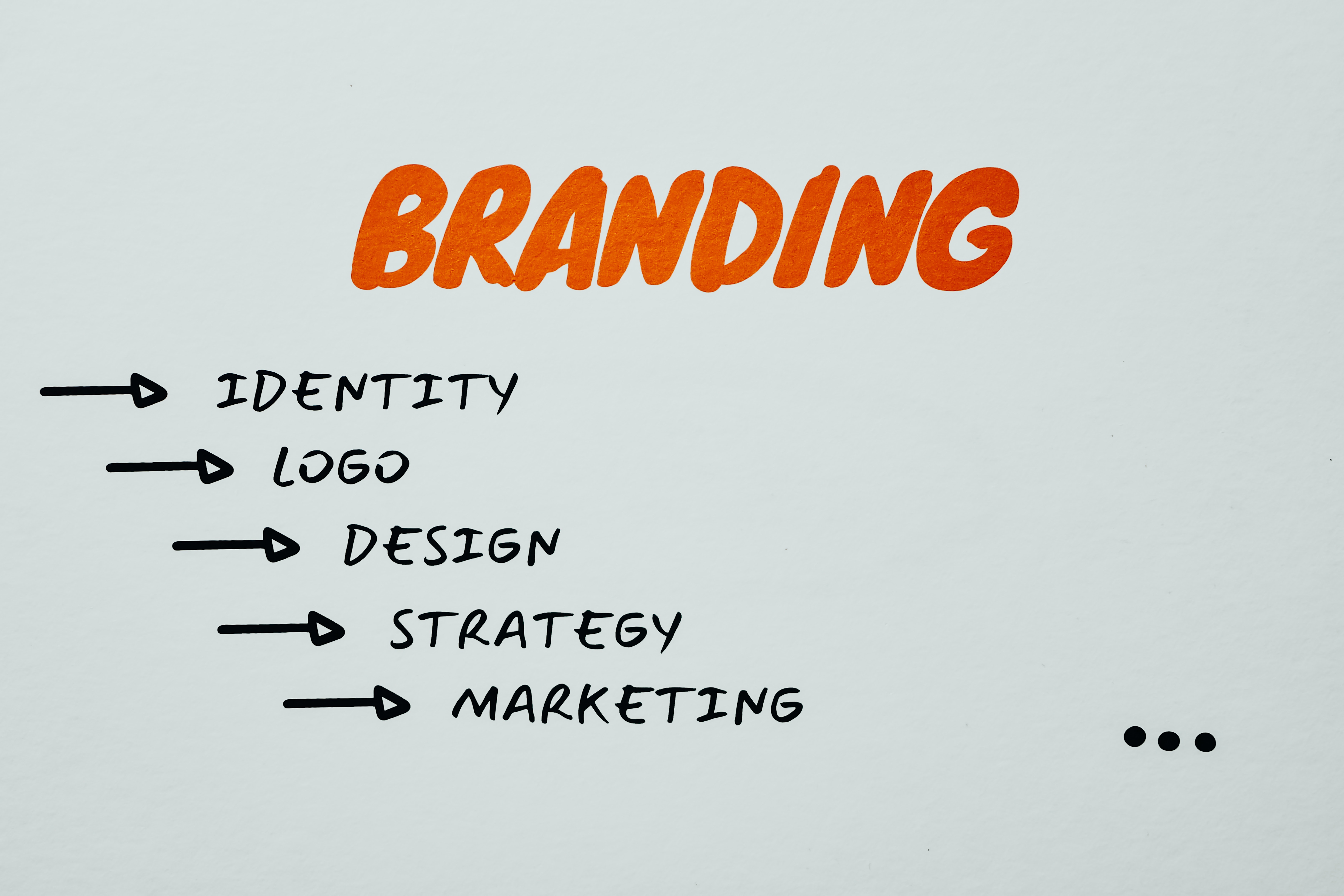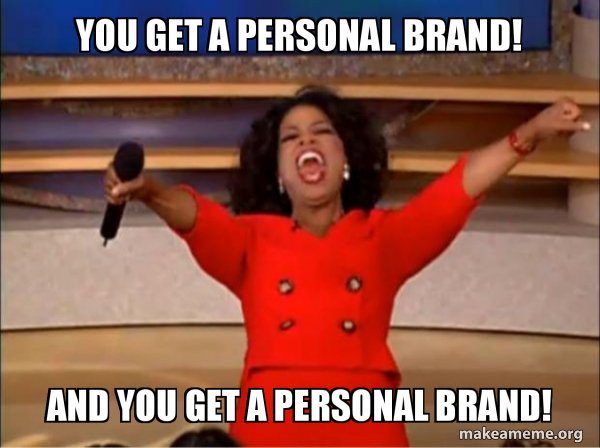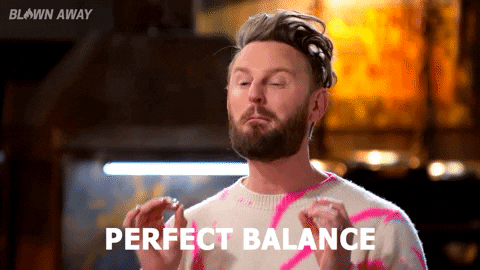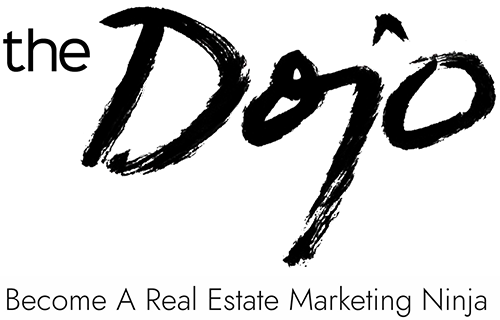There’s a couple of things you know whether you’re new to the real estate industry or if you’ve been in the game for awhile: you know your audience and you know how to sell houses.
But do you know how to sell the most valuable asset you have? That is to say, you.
In this article, we’re diving into all things personal branding for real estate agents. We’ll shed some light onto what it is and why you need a personal brand.
What Is A Personal Brand?
You undoubtedly are familiar with what a brand is – we refer to them regularly when talking about products or popular businesses. But have you ever considered yourself to be a brand? The idea of “personal branding” can be pretty foreign to people, but in this online era, personal branding is more important than ever!

Open a new tab in Google and search your name (with quotation marks around it). Obviously, you may find that other people share your name. But when you see articles or social media posts that mention you, do they present you in a favorable light or do you wish you could change your online record? Think about how other people perceive you. Do they connect you and your values with your real estate business and the values it represents?
Your personal brand begins at the intersection of your existing skills, passions, values, and beliefs. It’s how you present yourself to the world and showcase your unique set of skills, experience, and personality. It tells the story of who you are and includes elements such as your behavior, opinions, and attitudes.
No matter your industry, one thing holds true: your personal brand is who you are. It’s your reputation. It defines how you are known in your community and to potential clients.
The concept of a personal brand is quite simple: define, differentiate and communicate the value you offer your target audience over your competitors. In other words, it helps potential clients decide whether you’re the right real estate agent for them to work with.
Why Do Real Estate Agents Need A Personal Brand?
At their core, all real estate agents help with the same thing: buying or selling homes.
Think of how overwhelming it would be for a potential client to choose a real estate agent to work with if there was no front runner or someone they naturally gravitated towards.

Your personal brand can be a vital asset that helps you stand out from the competition. It’s how a potential client walks into a room with 100 other real estate agents and picks you as the one they want to work with.
Your prospects need to have a certain level of trust in you, and this is where your personal brand comes into play. It lends a consistent voice, look, message, and presence to your real estate business whether people connect with you on or offline.
Still not sure why it’s so important for you to create a brand? Consider this:
It’s authentic
People hire real estate agents that they know, trust, and like. They look for agents who share their values, who have established themselves in the industry, and who they feel drawn to.
Before, your personal brand was really just your business card. Now, it can include your real estate website, videos to showcase your personality or behind the scene photos. Regardless of the medium, your personal brand helps humanize your brand while presenting yourself as a competent and professional real estate agent.

You establish a genuine relationship with your audience and prospects when you show up authentically. As well, it helps build trust and move leads and prospects through your pipeline without you needing to do a lot of manual heavy lifting. After all, people tend to work with the agent who has a strong personal brand they connect with over someone new.
Positions you as an expert
The beauty of developing your personal brand is that you get to decide what story you tell and how you present yourself within the real estate industry.
Maybe you’ve discovered that you prefer helping people downsize their homes or become first time home buyers. Focus on helping educate your intended audience, whether that’s through social media or blog posts. Create specific, topic-driven content that breaks down the information into digestible chunks. Your personal brand will start to form and every piece of relevant and valuable content will help establish yourself within your niche – talk about two birds, one stone!
Helps people remember you
Some people have a certain je ne sais quoi, an undefinable aura. Take Brad Pitt for example – bet you weren’t expecting to read about Brad Pitt in a real estate article. A modern-day James Dean, he’s built a strong personal brand around being the handsome Hollywood hunk. When you think of a laid-back, universally attractive, and effortlessly cool celebrity, you can’t help but picture Brad Pitt.
This is the power of personal branding! It helps form a lasting impression and keeps you top of mind for buyers and sellers in your community.

Your authenticity, unique approach to selling real estate, or even your niche give you an advantage over the competition. When done right, it helps form a lasting impression and keeps you top of mind for buyers and sellers in your community. Your expertise and skill set speaks for you even when you’re not in front of that prospect.
How To Create Your Personal Brand As A Real Estate Agent
Remember our analogy about being in a room with 100 other REALTORS®? A memorable personal brand will have prospects walking up to you right away in that room rather than wandering around trying to remember your name.

Keep your focus on coming up with answers to the question when defining your personal brand: “Why should a client choose me as their agent?” To help answer that question, we’ve outlined 5 steps to help you build a compelling personal brand that attracts your perfect clients.
1. Know Your Audience
Defining your brand relies on answering important questions about yourself and your ways of doing things. So ask yourself: Who is my clientele and what do they need help with?
Are they families in suburban neighbourhoods? Are they looking for rental rooms in large apartments? Are they retirees looking for vacation homes? This is the most important part of the branding process. The people you want to work with and the problem you solve for are what your personal brand is built on.
Just like you wouldn’t decorate rooms in a home with a weak foundation, you can’t build a business without having a strong understanding of the basics. All of your advertising, communications, and design will revolve around these 2 elements, so make sure you’re crystal clear on it!
Why is it important to know your audience? The foundation of a strong personal brand is how well you understand your audience and the problems they face.
One of the biggest mistakes you can make as you build a personal brand is trying to get everyone to like you. After all, not everyone is your ideal client.
You’ll end up attracting no one if you try to appeal to everyone. Think about it… if you’re creating content that bounces between being relevant to first time home buyers, people looking to downsize, people looking for luxury homes, and everyone in between, your messaging is going to get confusing! How will potential clients see you as an expert and the answer to their problem when they’re not entirely sure where your expertise lies?
While it may seem like you’re closing the door on the opportunity to work with various people, you’re actually focusing your messaging and building your authority so you can reach your ideal clients.
It’s important to mention that your audience and niche can evolve over time. Your personal brand doesn’t need to be set in stone and can change as you gain more experience and work with different clients.
2. Standing Out From Other Real Estate Agents
To stand out from the competition, you’ll have to do some inner reflection to determine your goals, vision and how you want to approach business. These 3 pieces will help you uncover what sets you apart.
Ask yourself: What are your deal breakers? What do you stand for? What could you talk about for hours on end? What comes easy to you that others might struggle with? What do you want to be known for? Why are you a REALTOR®? What inspired you to get started in real estate?
The answers to these questions (among others!) will immediately differentiate you from your real estate competitors because nobody can replicate your unique thought process or value – after all, it is a personal brand.
3. Secure A Domain Name and Build a Website
Large brokerages like RE/MAX or Century 21 usually give you a website on their domain. These can be carbon copy websites or cookie cutter templates that don’t give you much autonomy in how you want to portray yourself online. They’re definitely not enough to set you apart from all the other agents in your brokerage, let alone in your market!

We may be a bit biased, but we fully recommend securing a domain name and building a website you have complete control over. This is often the first impression potential clients have with your real estate business, and you’ll want to make sure you’re the one crafting the narrative of who you are and how you serve your clients. If one of your values is transparency, it would be great to have visible reviews from past clients. If you really value your social skills, your website should be written in a friendly, approachable tone.
Of course, the team at RealtyNinja can help you create a REALTOR® website that’s both functional and beautiful.
4. Use Social Media To Build A Brand
Audiences on social media adopt a different behavior when scrolling social media platforms versus browsing the web. While a blog post caters to SEO marketing, social media marketing leaves more of an instant impression through its content.

Remember that work you did in understanding your audience and figuring out what sets you apart? The content you share on social media should align with those elements, as it also has the power to shape your brand.
When talking about content, we can’t forget about its visual elements! Ensure you’re using consistent colors and fonts across the images, graphics and videos you share online. When someone visits your Instagram page, are your branding colors immediately apparent?
Take the meditation app Headspace for example. Their branding is built around inspirational quotes, a bright color palette and charming illustrated characters. One scroll through their Instagram or website and you can’t help but feel a sense of joy – which is exactly in line with their mission: less stress, more joy.

Over time, your followers will notice the small, consistent details and begin to recognize when a post is from you – without needing to see your logo or social media handle! This type of brand recognition is the ultimate goal!
5. Find Offline Branding Opportunities
You can be an expert on more than the market; in real estate, it’s useful to be a community expert as well. This is beneficial for so many reasons. For one, you can match a client to a neighbourhood with ease.
By learning about them and their passions, you can help them find a community that makes sense for them and their needs. You’re also likely to be the first to know about which homes are selling, what market rate is, and who would be likely to seek out homes in that area.

Finally, it reflects really well on a REALTOR® to care about more than profiting from a neighborhood. If you become involved in the community and give them some of your time, community members and clients alike will be grateful for your time.
Volunteering or attending local events proves that your interests extend beyond real estate. Caring about the neighborhoods that you’re selling is a huge benefit for everyone involved.
Work With A Real Estate Branding Agency
In business, you have to acknowledge your strengths and know when to delegate your weaknesses.
Creating a personal brand goes much deeper than understanding your audience. It requires strategy, copywriting and graphic design skills that need to work in harmony.

Working with a real estate branding agency gives you guidance and thought leadership throughout the entire process. They come to the table with a proven process so you’re not left scratching your head wondering if you’re going about it the right way. They know all the right questions to ask when evaluating who you are and analyzing your target audience.
With them, they also bring the copywriting and graphic design capabilities that are up to date on best practices. Remember how those two skills need to work together? When you’re working with an agency, everything is unified and consistent across all touchpoints.
On the other hand, working with separate copywriting and graphic design freelancers can cause miscommunications and a brand that doesn’t feel cohesive. The more the branding activity can stay in a central location, from a unified team, the more consistent the outcome.
Of course, once the branding agency has perfected your brand vision, RealtyNinja can integrate it across your website – just reach out to our team!
Be sure to check out our marketplace here. There’s a list of terrific branding companies (among others) that can offer you a great deal – just mention you’re a RealtyNinja customer!
Conclusion
There’s a lot of marketing involved in real estate, so don’t forget about marketing yourself to the correct set of potential clients. You can set yourself apart from the competition by focusing on your brand.
Take the time to uncover your goals as a REALTOR® so you can best position yourself as an expert and attract your target audience.




